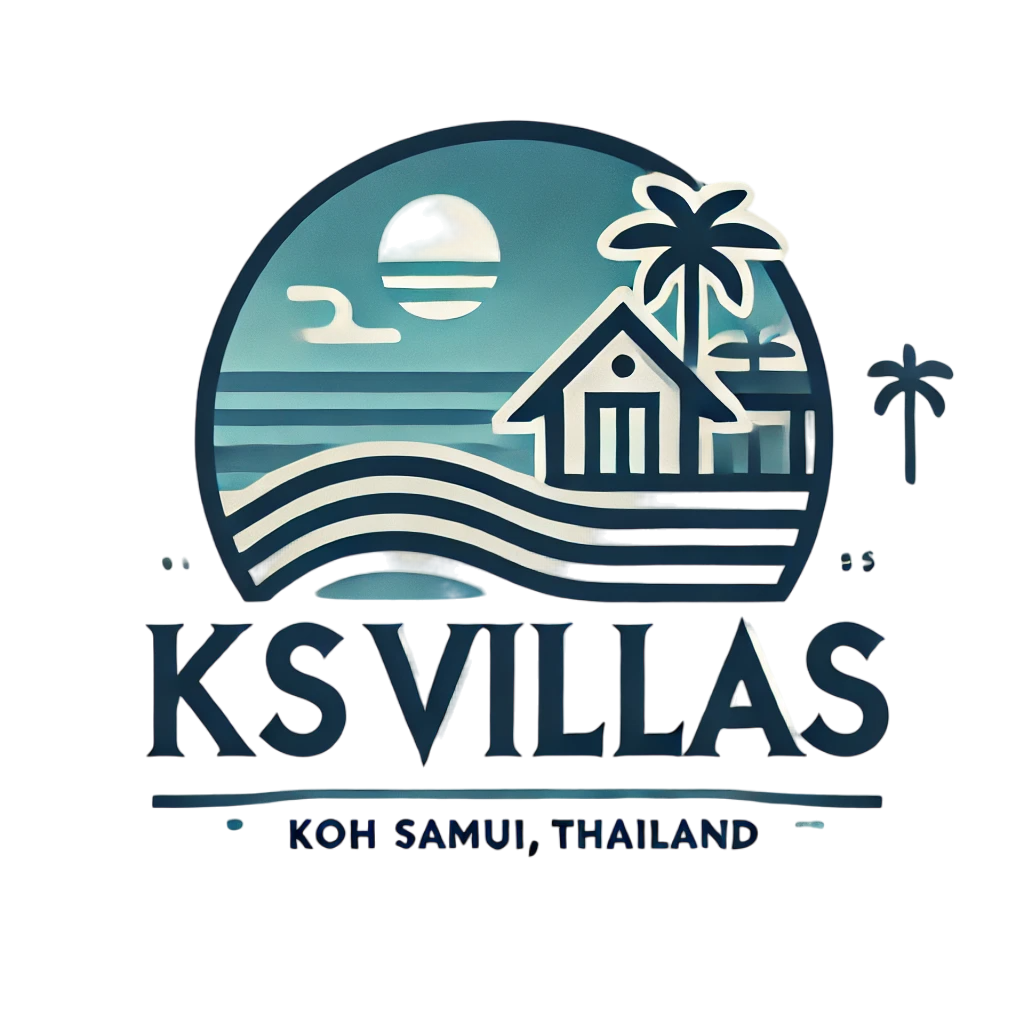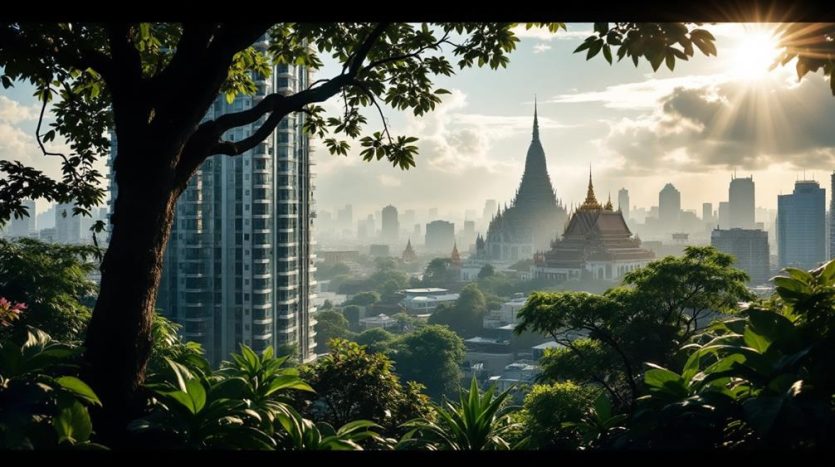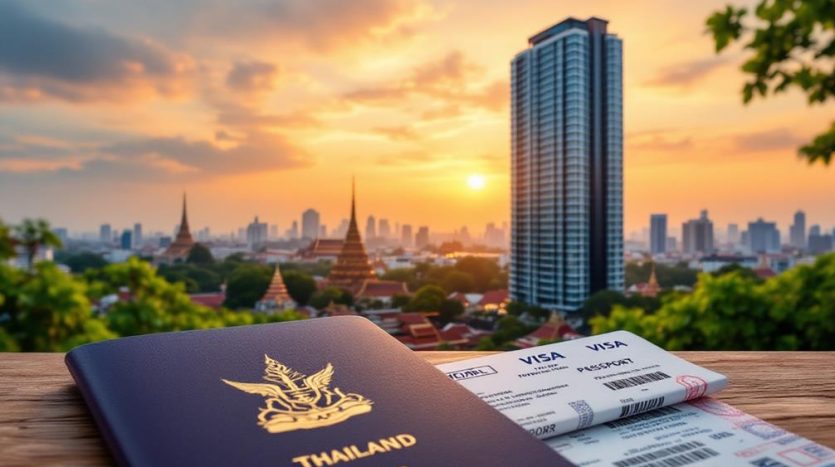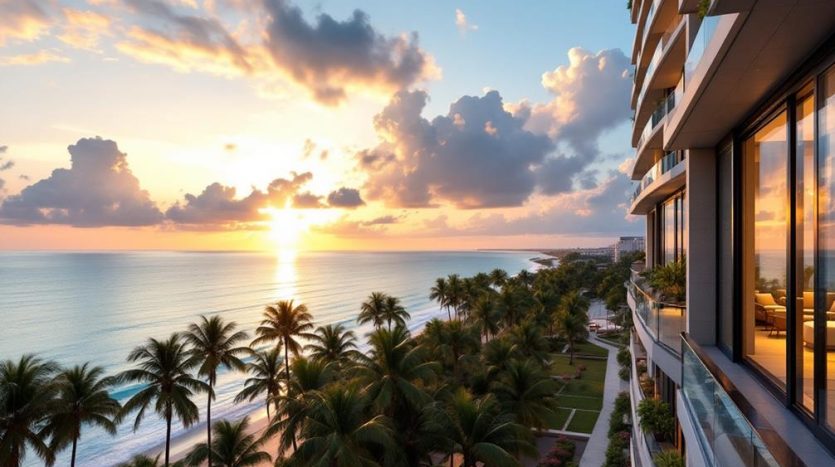How Long Can I Stay in Thailand if I Own a Condo?
Picture your condo in Thailand as an anchor in a sea of possibilities, yet it doesn't tether you to an extended stay. Owning property might seem like a golden ticket, but visa regulations are the real gatekeepers. You can enjoy the tropical paradise for 30 days under the visa exemption or stretch it to 60 days with a tourist visa. But what if you're dreaming of a longer horizon? Options abound—from non-immigrant visas to the Elite Visa Program—each with its own set of criteria. Curious about the paths to a more permanent stay?
Key Takeaways
- Condo ownership in Thailand does not grant any special visa privileges or extend your stay duration.
- Foreigners can stay up to 30 days under the visa exemption program, regardless of property ownership.
- Tourist visas allow a 60-day stay, extendable by 30 days, but condo ownership does not influence this.
- Non-immigrant visas offer longer stays, but eligibility is based on factors like employment or retirement, not property ownership.
- The Elite Visa program offers up to 20-year stays, but requires a financial commitment separate from condo ownership.
Understanding Thai Property Laws
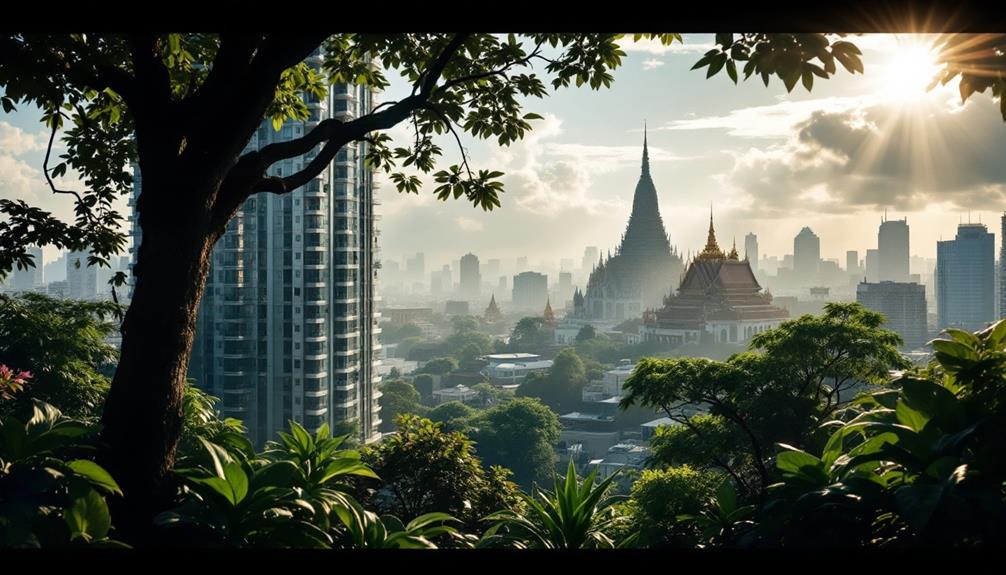
Maneuvering through Thai property laws is essential if you're considering purchasing a condo in Thailand. You might think it's as easy as picking out a nice view and signing on the dotted line, but alas, the land of smiles has its quirks.
First, you'll find that property ownership for foreigners is possible, but there are legal restrictions you must navigate. Thai law permits foreigners to own condos, but the building you're interested in must have at least 51% of its units owned by Thai nationals. Additionally, foreign ownership is limited to 49% of the total floor area in condominium buildings, making it necessary to verify the foreign ownership quota with developers. So, you'll want to check those numbers before getting too attached to that infinity pool.
Then there's the land ownership conundrum. While owning the condo is perfectly legal, the land it sits on is another story. Foreigners can't own land, so your best bet is to secure a long-term lease for the plot. It's like a long-term relationship without the commitment issues!
Tourist Visa Options
When considering your stay in Thailand with a condo, it's important to understand the tourist visa options available to you.
You can initially enter the country under the visa exemption program, which allows a stay of up to 30 days for many nationalities.
If you wish to extend your stay, you have the option of applying for a tourist visa extension, which can typically grant an additional 30 days.
Additionally, understanding the various visa options and their associated fees will help you plan your long-term stay effectively.
Visa Exemption Duration
For travelers considering an extended stay in Thailand without a long-term visa, the visa exemption duration offers a convenient option. Imagine this: you've just bought a fabulous condo overlooking a pristine beach, and now you're wondering how long you can bask in its glory before the clock runs out.
Good news! With a visa exemption, you can enjoy Thailand's wonders for up to 30 days without the need for a tourist visa. It's like a refreshing change for spontaneous adventurers and condo-owning enthusiasts alike.
Of course, property ownership doesn't magically extend your stay, even if your condo views are spellbinding. The visa duration remains 30 days, so don't get too cozy without a plan. You can enter via international airports or land borders, but remember, each entry grants you only 30 days. It's a charmingly brief affair—like a whirlwind romance with a tropical paradise.
Keep in mind, the visa exemption's purpose is to provide short-term access, so strategize accordingly. Whether you're lounging by your condo pool or exploring bustling Bangkok streets, always be mindful of those 30 days.
Your condo may be forever, but your visa exemption isn't.
Tourist Visa Extension
Considering a longer stay in Thailand's enchanting locales, you might explore the option of a tourist visa extension. You're in luck, as the Land of Smiles offers a few extension options to guarantee your condo dreams don't get cut short. First things first, a tourist visa typically grants you a 60-day stay, but with a sprinkle of bureaucratic magic at the Thai Immigration Office, you can extend it for another 30 days. So, what does this process entail? Let's break it down.
| Step | Description |
|---|---|
| 1 | Visit the local Thai Immigration Office. Make sure it's a real one, not a street vendor selling elephant pants. |
| 2 | Submit your application, passport, and a charming passport-sized photo. |
| 3 | Pay the fee, a modest sum compared to the price of a tuk-tuk ride across Bangkok. |
| 4 | Await the extension approval, which is usually quicker than a Thai massage. |
With these extension options, you can savor more pad thai and sunsets, all while staying legally sound. Remember, humor aside, overstaying isn't a joke—unless you're a fan of hefty fines and awkward conversations with immigration officers.
Non-Immigrant Visas Explained
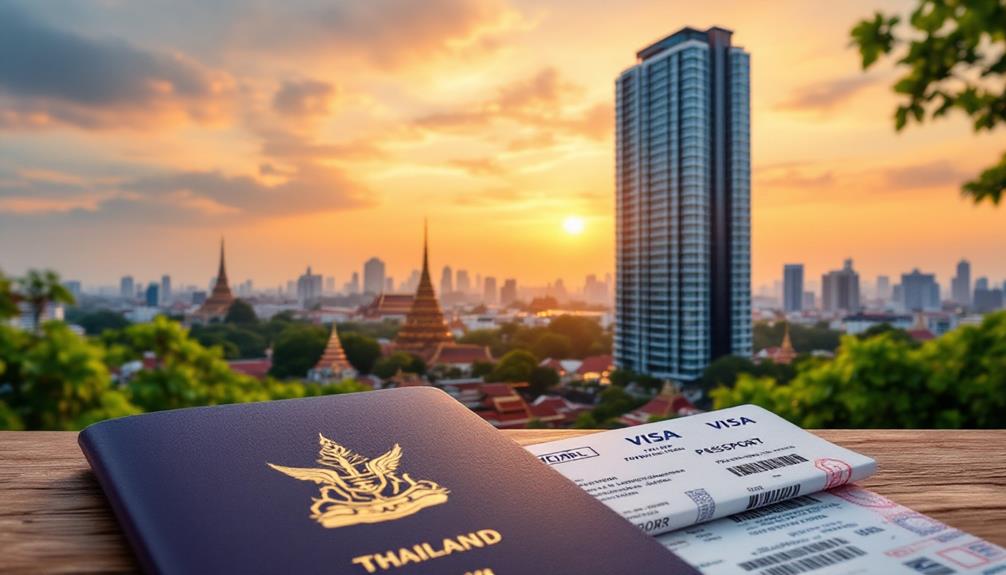
When considering a non-immigrant visa for Thailand, you must first understand the eligibility criteria specific to your situation, such as employment, retirement, or education.
It's crucial to recognize that tenant rights, such as the obligation for necessary repairs, can influence your living experience if you're renting a condo.
Follow the structured application process, which typically involves gathering required documentation and submitting forms to the Thai embassy or consulate.
Once approved, familiarize yourself with the visa's duration and explore options for extensions to guarantee compliance with Thai immigration laws.
Visa Eligibility Criteria
Understanding visa eligibility criteria is crucial if you're planning an extended stay in Thailand with a condo. It's like trying to dance the cha-cha without stepping on your partner's toes—tricky but doable with the right moves.
First, let's tackle the property ownership regulations. While owning a condo in Thailand doesn't automatically grant you a visa, it does open doors like a charming smile at a Thai market. You'll need to navigate the non-immigrant visa categories, which come with their own set of eligibility hurdles.
Non-immigrant visas, such as the O-A (Long Stay) or the O-X (Long Stay for seniors), focus on different visa duration limits and financial requirements. Fundamentally, they're like the bouncers at a club, ensuring you've got the right credentials to enter and stay.
The O-A usually grants a one-year stay, while the O-X can extend up to ten years. However, both demand proof of funds in your bank account (think of it as an entry fee to paradise).
Application Process Steps
Charting the application process for a non-immigrant visa in Thailand is your next vital step. You're not just packing your bags; you're starting on a bureaucratic adventure that rivals any Indiana Jones escapade. First, understand the application requirements, which might feel like deciphering an ancient scroll. Gather essential documents like your passport, condo ownership papers, and financial statements—think of it as assembling your personal Avengers team.
Next, tackle document preparation with the precision of a ninja. Make sure everything is up-to-date and translated into Thai if necessary. Timing is essential; submit your application at the Thai embassy or consulate in your home country well in advance.
Here's a handy table to keep you on track:
| Step | Action Required | Pro Tip |
|---|---|---|
| 1. Research | Verify visa type and requirements | Use official Thai sources |
| 2. Document Checklist | Gather all necessary documents | Double-check translations |
| 3. Submission | Submit at Thai embassy/consulate | Don't procrastinate! |
| 4. Wait for Approval | Patience is key | Distract with vacation plans |
| 5. Prepare for Entry | Confirm visa details and travel arrangements | Celebrate with Pad Thai |
Navigating this process might seem overwhelming, but with the right preparation and perhaps a sense of humor, you'll soon be enjoying your condo view in Thailand.
Duration and Extensions
Maneuvering the duration and extensions of non-immigrant visas in Thailand requires some understanding of the available options. Owning a condo might make you feel like you've revealed a secret level in the game of life, but alas, property ownership alone doesn't grant you indefinite residency.
For those holding a non-immigrant visa, you initially get a 90-day stay. However, you can extend this period, and that's where the fun begins—or continues, for those who find immigration paperwork thrilling.
You can apply for a one-year extension at the local immigration office. Your condo ownership could support your case, but it's not the golden ticket to an endless Thai summer. You'll need to show financial stability or income, proving you won't end up living on pad Thai alone.
Extensions aren't automatic; you must renew annually, which keeps life exciting and your paperwork skills sharp.
Be mindful of residency implications, as overstaying can lead to fines or a ban from the country. So, while your condo might feel like home, remember that visas don't come with the same permanence. Think of them as an annual subscription to paradise.
Retirement Visa Requirements
A retirement visa is a popular option for those wishing to enjoy their golden years in Thailand while residing in a condo. To qualify, you need to demonstrate financial stability, which means showing proof of a monthly income of at least 65,000 Thai Baht or maintaining a bank account with a minimum of 800,000 Thai Baht.
It's like a financial handshake with the Thai government, guaranteeing them you've got things covered without dipping into their resources. Property ownership, like owning a condo, can be a delightful bonus but doesn't directly influence your eligibility for a retirement visa. However, it does make you an attractive candidate as it demonstrates commitment to the country.
It's worth noting that urban areas in places like Bangkok can cost considerably more than rural properties, so planning financially is essential. But remember, even with a condo, you can't skip the financial stability check. It's not Monopoly money we're talking about here.
You'll need to be at least 50 years old to qualify, so if you're celebrating half a century, why not in the Land of Smiles? Gather your paperwork, including a valid passport and a health certification if required.
Confirm everything's in order, and who knows, you might just find yourself sipping coconuts on a Thai beach sooner than you think.
Long Stay Visa Options
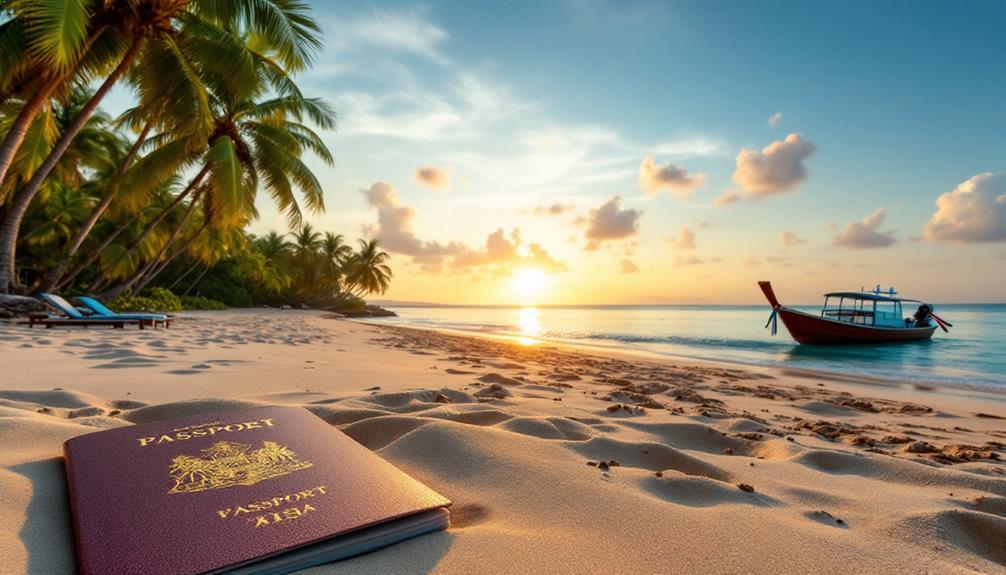
While a retirement visa provides a clear pathway for those over 50, Thailand offers a range of long stay visa options suitable for various needs and circumstances.
If you own a condo in Thailand but aren't quite ready to join the retirees sipping coconut water on the beach, there are still options for you. Thailand has crafted a selection of visas to accommodate different lifestyles, including the Non-Immigrant B Visa for business aficionados, and the Non-Immigrant O Visa for those with family ties in the Kingdom.
Additionally, it's crucial to take into account regional price variations, as property costs can influence your overall living expenses in Thailand.
But let's not forget the Non-Immigrant ED Visa, perfect for those wishing to brush up on their Thai language skills while enjoying long term residency.
If your condo ownership is more about investment than residence, you'll have to navigate these options wisely. With each visa type, there's a unique set of requirements and benefits—some might even require you to show up in person occasionally at the immigration office, but hey, that's just part of the charm, right?
In short, owning a condo in Thailand does open doors to extended stays, but it's vital to align your goals with the appropriate visa category.
Elite Visa Program
Thailand's Elite Visa Program offers an exclusive opportunity for those seeking long-term residency with added privileges.
Imagine yourself sipping coconut water while basking in the sun, knowing you can stay in Thailand for up to 20 years without the typical visa headaches. Sounds like a dream, doesn't it? Well, with the Elite Visa, that dream can become your reality.
The elite visa benefits are nothing short of impressive. You'll enjoy expedited immigration processing, access to VIP lounges, and even assistance with your elite visa application.
The program's options cater to different needs, whether you're a frequent traveler or someone enthusiastic to make Thailand your second home. Plus, there's a dedicated concierge service—because who doesn't want a little pampering?
Applying for this visa is as smooth as Thai silk. You won't need to navigate the complex bureaucracy alone; the process is streamlined and efficient.
Just remember, the elite visa application requires a financial commitment, but think of it as an investment in a life of leisure and luxury.
Visa Exemptions and Extensions

For travelers keen to explore Thailand without committing to a long-term visa, understanding visa exemptions and extensions is essential.
Envision this: you're sipping coconut water on your condo balcony, contemplating your next pad thai, when suddenly visa regulations knock on your mental door. Fear not! As a condo owner, you've got some tricks up your sleeve.
Thailand offers visa exemptions for citizens of certain countries, allowing you to stay for up to 30 days without a visa. That's like a whole month of elephant encounters and tuk-tuk rides!
But if you're not ready to say "sawasdee" to an exit just yet, you can extend your stay. Visit a local immigration office and request a 30-day extension for a small fee. It's like getting an extra scoop of mango sticky rice—always a good idea.
Although a condo doesn't automatically grant you residency options, owning one can serve as a strong base for your Thai adventures.
Work Permits and Visas
Owning a condo in Thailand offers a fantastic base for your adventures, but if you're considering working there, understanding work permits and visas is essential. You can't just waltz into a job without adhering to the local employment regulations. Thailand takes its work permits seriously, so unless you're planning to be a professional hammock tester, you'll need to follow the rules.
Here's a quick table to guide you through the maze of work permits and visas:
| Visa Type | Work Permit Requirement | Duration of Stay |
|---|---|---|
| Tourist Visa | Not permitted | 60 days |
| Non-Immigrant B | Required | 90 days initially |
| Elite Visa | Not permitted directly | Up to 5 years |
| Marriage Visa | Permitted with permit | 1 year renewable |
| Retirement Visa | Not permitted | 1 year renewable |
Permanent Residency Pathways

To explore permanent residency pathways in Thailand, you must first understand the eligibility criteria, which include factors like investment, work history, or family connections.
Once you determine your eligibility, you should follow the structured application process, ensuring all necessary documents and requirements are met.
Successfully managing these steps grants you the opportunity for long-term residency, allowing you to enjoy your condo in Thailand without the constraints of short-term visas.
Eligibility Criteria Overview
When considering residency implications, note that owning a condo doesn't directly grant you permanent residency, but it supports your case in other residency pathways.
For instance, you might explore options like the Investment Visa, where your shiny condo can play a supporting role. Humorously speaking, think of your condo as the understudy in a play, ready to step in and impress if the lead role falters.
Eligibility also hinges on other factors such as your employment status, family ties, and contribution to Thai society.
You'll need to showcase how you enrich the local landscape—beyond your condo's four walls. So, while your condo aids your residency quest, make sure you're on top of other requirements like language proficiency and financial contributions.
After all, permanent residency isn't just about having a roof over your head—it's about the whole package.
Application Process Steps
Starting on the journey towards permanent residency in Thailand involves a structured application process that demands careful attention to detail.
You'll want to navigate this path with precision, as it's not just a matter of filling out a few forms and hoping for the best. First, understand the application requirements, which include showcasing your financial stability, passing a criminal background check, and demonstrating a commitment to residing in Thailand.
Think of it as a bureaucratic treasure hunt, where each correct document is like finding a golden clue leading you closer to your residency goal.
Now, let's talk about the document checklist. You'll need a valid passport, evidence of your condo ownership, financial statements, and a health certificate.
Don't forget that letter of recommendation from a Thai citizen—because who doesn't need a local cheerleader? Each document must be meticulously prepared and translated into Thai, ensuring there are no last-minute surprises that could send you back to square one.
Legal Advice and Resources
Maneuvering the legal landscape of staying in Thailand with a condo requires a clear understanding of the available resources and legal advice.
Start by recognizing that property ownership doesn't automatically grant you a visa or the right to stay indefinitely. Steering through this complexity requires legal assistance from professionals who specialize in Thai property law. These experts aren't just helpful—they're your best friends in decoding the maze of regulations and ensuring your stay in the Land of Smiles doesn't turn into a bureaucratic obstacle course.
You'll want to tap into resources like the Thai Embassy or consulate websites, which provide up-to-date information on visa types and requirements. They offer a treasure trove of information, minus the pirates, to help you understand your options.
Online forums can also be a goldmine of first-hand experiences—just remember to take each post with a grain of salt, or maybe a whole shaker.
Consider hiring a local attorney for personalized guidance. They'll help you sidestep any legal pitfalls and make sure your investment doesn't become a proverbial elephant in the room.
Armed with good humor and solid advice, you'll be well-equipped to enjoy your Thai condo adventure.
